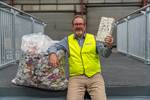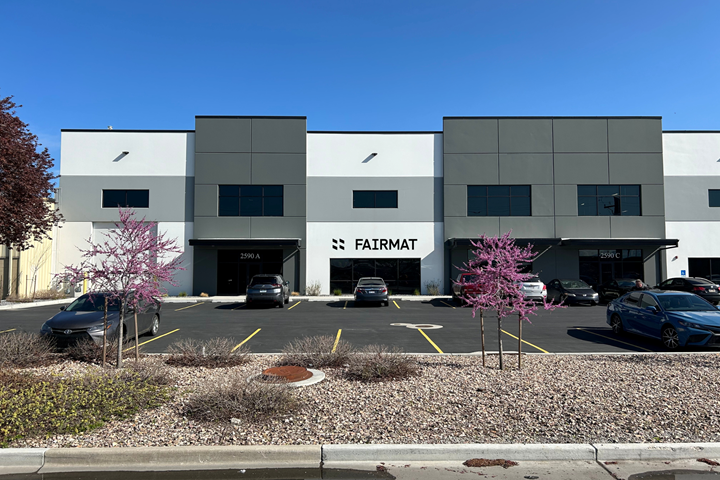Fairmat opens first U.S. industrial facility in Utah
Salt Lake City state-of-the-art facility and office will enable a high-tech closed-loop ecosystem to recycle and repurpose composites in the U.S.
Fairmat (Paris, France) has chosen Salt Lake City, Utah for the location of its first U.S. office and facility, bringing 25 new jobs to the state. This expansion leverages Fairmat’s tech-enabled manufacturing processes, developed initially at the company’s headquarters in France and in Spain, to address carbon fiber waste issues throughout the U.S.
Fairmat collaborates with clients across different industries from mobility and electronics to sports and lifestyle — including Decathlon, Withings and DPS Skis brands and composites-related companies Hexcel, Siemens Gamesa, Dassault Aviation and Exel Composites. The company’s R&D investments in robotics, AI and data-driven manufacturing enables the company to produce 100% recycled, high-performance repurposed carbon fiber materials.
The new Utah-based 15,000-square-foot manufacturing facility and office will bring Fairmat closer to the region’s carbon fiber material hub and its U.S. clients. Fairmat says it will establish a high-tech closed-loop ecosystem, diverting carbon fiber materials from landfills, by recycling these composites and incorporating them into product design in North America.
Key partnerships with national and state government, industry, associations, clients and Fairmat-dedicated employees contributed to this location opening. “We are proud to announce Fairmat’s decision to expand their operations to Utah, marking a significant milestone in our state’s economic development,” Ryan Starks, executive director, Utah Governor’s Office of Economic Opportunity, notes. “We look forward to a fruitful partnership that will drive innovation, economic growth and environmental stewardship [in Utah].”
Related Content
-
Bio-based acrylonitrile for carbon fiber manufacture
The quest for a sustainable source of acrylonitrile for carbon fiber manufacture has made the leap from the lab to the market.
-
Plant tour: Joby Aviation, Marina, Calif., U.S.
As the advanced air mobility market begins to take shape, market leader Joby Aviation works to industrialize composites manufacturing for its first-generation, composites-intensive, all-electric air taxi.
-
TU Munich develops cuboidal conformable tanks using carbon fiber composites for increased hydrogen storage
Flat tank enabling standard platform for BEV and FCEV uses thermoplastic and thermoset composites, overwrapped skeleton design in pursuit of 25% more H2 storage.














